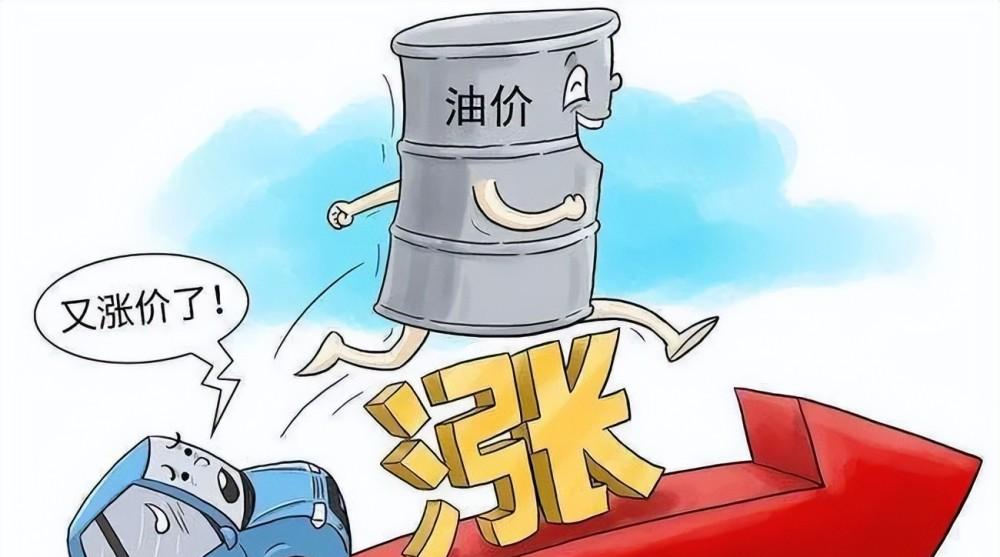Due to the tight international crude oil supply, domestic oil prices have achieved 5 consecutive increases this year. Taking Beijing No. 95 gasoline as an example, the price has risen from 7.8 yuan / liter to the current 9.21 yuan / liter. In the face of rising oil prices, many car owners complained, saying that "shouting a sentence to fill up, there is a shiver in the heart." Can't afford a fuel car? Not really, but it does cost more than before.

The vast majority of fuel vehicles are about 150,000 family cars, which are generally used for commuting to work, picking up children to school and weekend trips. According to the frequency of daily use, basically add 3-4 times a month. If you choose No. 95 gasoline, each refueling at the beginning of the year will cost about 370 yuan. After the price increase, the cost of each refueling has approached about 450 yuan. Equivalent to that, the monthly oil cost is about 1500 yuan per month, which is about 200 yuan more than the previous month.
About 2400 yuan more is spent on fuel every year, and the increase in costs seems to be small, but for ordinary wage earners, it is still a big economic burden. Soaring oil prices have made new energy manufacturers "like a spring breeze". Shen Hui, the founder of WM Motor, waited for the opportunity to ridicule the oil price on social media: "According to the calculation of 100,000 kilometers in 5 years, the electricity cost consumed by smart electric vehicles can save about 80,000 yuan in 5 years compared with the fuel cost of oil vehicles, which is almost equal to 4 LV or Hermès bags." ”
There is no doubt that compared with fuel vehicles, new energy vehicles, especially electric vehicles, have an incomparable advantage in the cost of using vehicles. According to the household + commercial charging model, an ordinary pure electric car, compared with a fuel vehicle of the same level, runs 20,000 kilometers a year, and the former is only about one-tenth of the energy consumption cost of the latter. Not to mention, electric vehicles can now also obtain free license plate resources. Even so, it cannot be said that new energy vehicles are very economical.
First, the price of new energy vehicles has increased, and the cost of car purchase is relatively higher. Due to the shortage of upstream raw materials and other factors, new energy manufacturers have announced price increases. In nearly a week, Tesla's Model 3 price increased by 28,000 yuan, and the Model Y rose by up to 30,000 yuan. Xiao Peng. Weima and BYD have also announced model price increases, and the increase is also around 10,000 yuan. For the average wage earner, ten thousand yuan is a considerable economic burden.
Second, the time cost is high. Due to the shortage of manufacturing raw materials such as chips, the production speed of new energy manufacturers is not as fast as in the past. Tesla's official website shows that the model 3 is expected to deliver time, and the current minimum wait is 140 days. Xiaopeng and other new car-making forces, the car pick-up cycle may exceed 3 months. In addition, because the charging infrastructure has not yet been fully rolled out, the installation of household charging piles is limited and the charging efficiency is not ideal, new energy vehicle owners will inevitably have waiting for charging. Coming and going, consumers will add a lot of time costs.
Third, the discount rate is high, and the residual value is not as good as that of fuel vehicles. A professional organization released a February report on China's automobile retention rate, and the data showed that in February this year, the three-year second-hand car retention rate of pure trams was 51%. In contrast, the retention rate of fuel vehicles is even better. Among its own brands, Chery, which ranks lowest, has a 3-year retention rate of 58.9% for second-hand cars. The most important thing is that this is only an ideal value, and the time performance of the second-hand market of new energy vehicles can be described as unbearable.
A 2016 BYD e6 electric vehicle, after the original price subsidy of 220,000 yuan, only sold 41,000 yuan when buying a new car, and the five-year retention rate was only 18%. And some pure trams that can rent batteries are not excessively discounted by 20% in half a year. A WEILAI EC6 performance version with a landing of about 375,000 yuan chose a Baas battery rental scheme of 70,000 yuan. As a result, half a year later, the recovery price given by Weilai's official second-hand car was only 305,000 yuan. Going to the second-hand market may be cheaper because used car dealers are less afraid to take a "shell car" without batteries.
The energy consumption cost of new energy vehicles is indeed considerable, but the integration of price increases, residual value and time costs does not seem to be an ideal saving. In fact, whether driving a fuel vehicle or a new energy vehicle, it is higher than the comprehensive cost of taking public transportation. Buying a private car is ultimately a convenience. Therefore, it is best not to worry about whether to save money, according to personal needs and budget, choose a car that suits you, this is the truth.